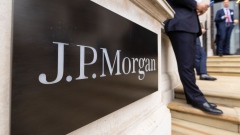Nov 6, 2019
House Democrats to begin public impeachment hearings next week
, Bloomberg News
Trump Impeachment Defense Erodes as Details Emerge on Giuliani’s Role
House Democrats are opening the public phase of their impeachment inquiry of Donald Trump next week with some of their central witnesses to detail the president’s pressure on Ukraine to investigate a political rival.
The public hearings will begin Nov. 13 with William Taylor, the current top U.S. diplomat in Ukraine, who described the conditions that Trump and his associates set for Ukraine’s new president to receive military aid and a coveted White House meeting.
The Intelligence Committee, tasked with leading the public hearings, will call the State Department’s George Kent on the same day. Former U.S. ambassador to Ukraine Marie Yovanovitch will testify Nov. 15.
Hearing testimony directly from career public servants ups the political risk for the Trump as he seeks to de-legitimize the impeachment process while preserving his re-election prospects in 2020. But there is also risk for Democrats who are trying to build public support for impeachment and protect moderate members who will be campaigning in Trump-friendly districts next year.
House Intelligence Chairman Adam Schiff told reporters the panel plans to release the transcript of Taylor’s private Oct. 22 testimony on Wednesday.
That deposition was described as a “smoking gun” by Democrats on the committees, since it included details about the pressure put on Ukraine through a back-channel effort led by Rudy Giuliani and other Trump administration officials.
Crucially, Taylor described a conversation in which U.S Ambassador to the European Union Gordon Sondland told Andriy Yermak, an adviser to Ukraine’s president, that military and security aid to Ukraine would be withheld until Ukranian President Volodymyr Zelenskiy committed to pursuing an investigation of Burisma, a Ukrainian energy company where Hunter Biden had previously served on the board.
Sondland on Monday revised his earlier testimony to the House committees that contradicted that account. In the revision, Sondland said his memory had been “refreshed” and that he did recall telling Yermak about the link between the aid and the investigation sought by the White House.
Both pieces of testimony undermine Trump’s main defense against the impeachment inquiry by providing the first direct testimony that a quid pro quo was communicated to Ukrainian officials.








